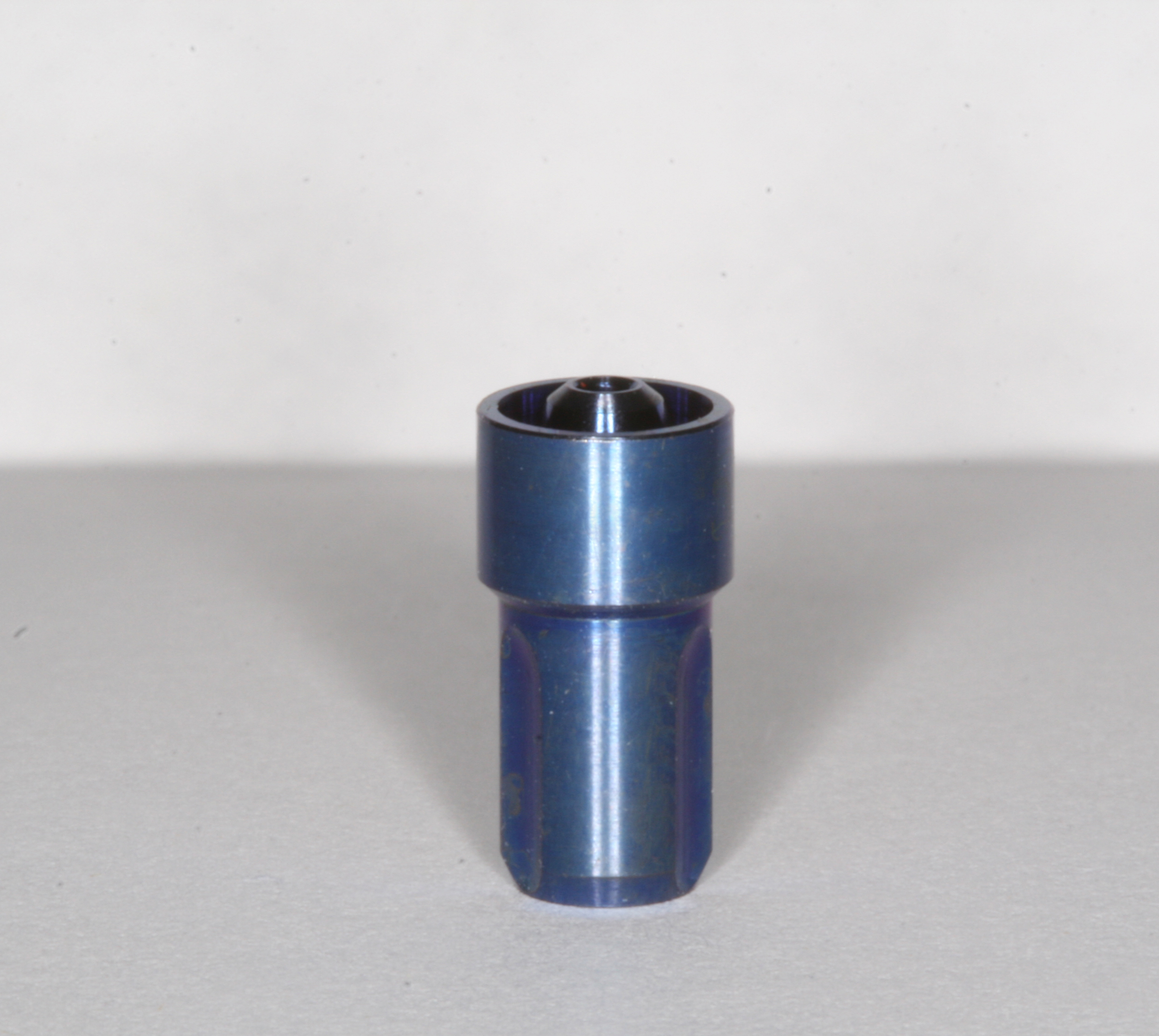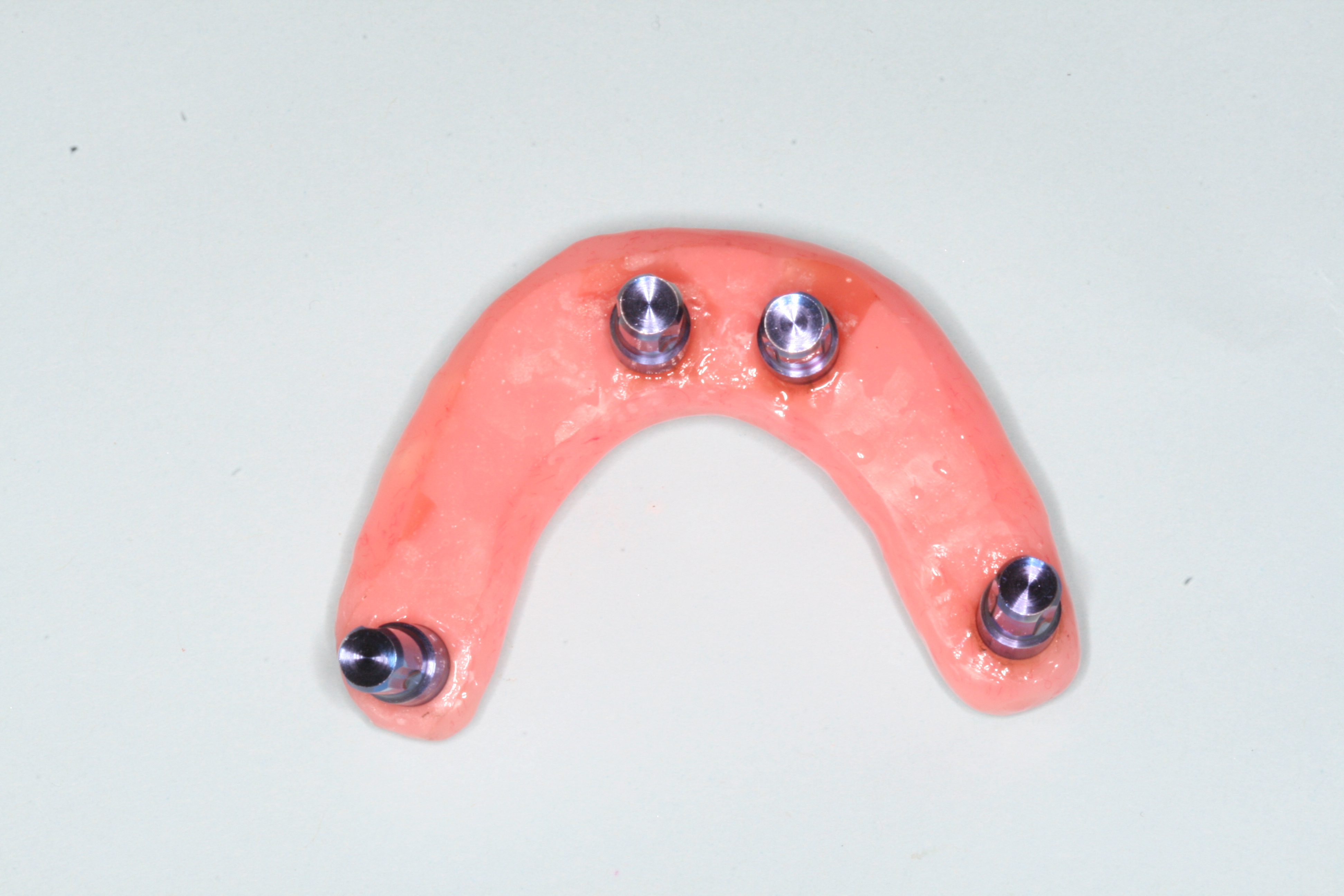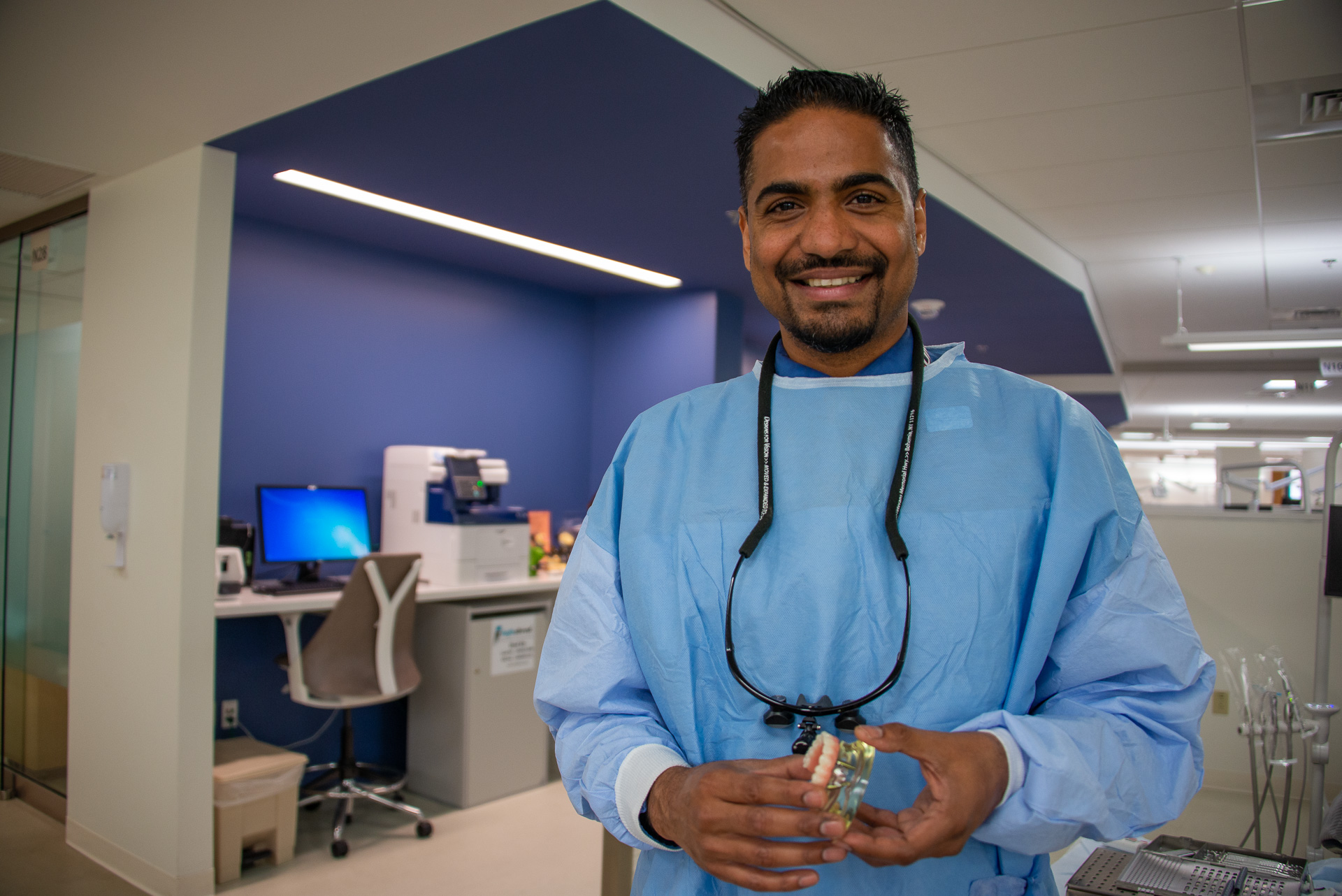New technology to improve dental implant bridges invented by Dr. Avinash Bidra, associate professor at the UConn School of Dental Medicine, recently received a patent from the United States Patent and Trademark Office.

This is Bidra’s first patent, and the 22nd patent for the School of Dental Medicine
“As a prosthodontist, this is an exciting time for my specialty, and I am grateful that UConn was able to bring this interesting idea that existed in my mind, all the way to commercialization, and now, a US patent. This innovation will help other dentists and dental technicians improve the quality of their implant prostheses and ultimately improve outcomes for their patients,” said Bidra.
In 2017, UConn and PREAT Corporation entered into a commercial licensing deal for Bidra’s invention, named Bidra Conversion Smart Polishing Cap. The technology is currently available for sale on PREAT’s website.
“Dr. Bidra’s invention exemplifies the contributions of astute clinicians to translating clinical problems into innovation to improve patient care,” said Dr. Sharon Gordon, dean of the School of Dental Medicine.
Existing methods for fabricating dental implant prostheses can lead to imperfections that could be potentially harmful for patients. Bidra’s invention significantly improves on the currently available standard products by adding an additional component that creates a closer fit for the dental implant pieces.

Using his invention, the acrylic resin added during the fabrication process does not come in contact with other components that could be scratched or damaged or interfere with the fit of the bridge. Scratches or damage to the other dental implant components allow bacteria and plaque to proliferate, resulting in soft tissue damage and possible bone loss around the implants.
Technology Commercialization Services within the Office of the Vice President for Research at UConn provided critical support for the patent and commercialization of Bidra’s technology.
Bidra, a UConn School of Dental Medicine alumnus, is also the director of Prosthodontics Residency Program at UConn School of Dental Medicine.



